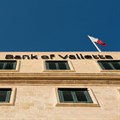A South African's guide to moving to and making it in Malta: What Malta learned from Marilyn; the wages of sun
Staged against a backdrop of paparazzi photography screens, the song-and-dance number presciently side-swipes fame and celebrity culture while driving home the message that to get ahead – in business as in life – it pays to specialise. That seems to be a lesson which the island state of Malta has taken to humming as new sectoral data published this month indicates.
Reviewing Maltese recruitment websites, it’s apparent that the island has become a hub for certain industries in the knowledge economy and that there are half a dozen career sectors which attract the most action.
Looking to fly your flag in Europe? Consider retraining in one of these six sectors: sales and marketing, i-gaming, legal and compliance, IT, administration, and banking and finance.
Financial services
Regarding this category, Malta's financial services sector made up 11% of the national economy in 2017, the financial regulator said in its annual report for the year.
The Malta Financial Services Authority report also found that financial services and insurance continue to account for over 90% of foreign direct investment into Malta.
Licence holders continued to increase and now number 2,180, with numbers up by 360 over the past three years.
Incoming MFSA CEO Joseph Cuschieri said the authority was investing "significant resources" to strengthen its due diligence processes at both pre- and post-licensing stages, and that the financial regulator was keeping a keen eye on developments in the fintech, blockchain and other digital innovation spheres.
Some other key numbers from 2017:
- More than 100 companies transferred their domicile to Malta;
- 97 new investment funds opened, bumping the net aggregate value of locally-based funds up to €10.6bn – a 7.8% increase from 2016;
- 6 new financial institutions set up shop locally, taking the total to 48;
- 5,297 new companies and 109 new partnerships, bringing the total up to 84,503.
Equally interesting was the Castille 2018 Salary Survey which gives very clear indications of what the market is paying.
Who’s the boss
Are you executive talent? Average annual gross basic salaries range from R900,000/€60K for a chief officer: internal audit to R2,250,000/€150K) for a CFO. Indicating where the tipping point is regarding skills shortages, the average recruited CFO (range: R1,200 000/€80K-R2,250,000/€150K) earns more than the average CEO (R1,125,000/€75K-R1,800,000/€120K).
Financial talent
If you are financially literate, the ranges start at R245,000/€16,333 for banking branch personnel junior 0-2 years’ experience (a long string to describe what is presumably a teller) to R1,200,000/€80K for an intermediate level 3-5 years’ product manager.
The IT factor
Tech stars, put down your gaming consoles: an entry-level salary, 0-2 years as a BI specialist will earn you R270,000/€18K. The highest tech salary listed is head of software engineering (R900,000/€60K).
Going to market
Marketing mavens may draw heart from the fact that an entry-level 0-2 years junior digital marketing executive could expect to interview in the R350,000/€23,458-R440,000/€29,305 range. (That’s more than entry level salaries for tech and financial talent). The most senior marketing position listed is marketing manager – the salary band is R580,000/€38,750-R750,000/€50,000. These are annual average gross salary amounts and exclude performance bonuses and other benefits.
The undeclared, untaxed bonus in all these salaries are the wages of sun, a clear swimmable ocean, relaxed, outdoors lifestyle and café culture. What price do you put on 300 days of sunshine per year?









